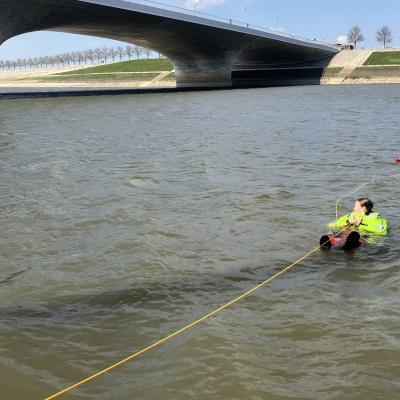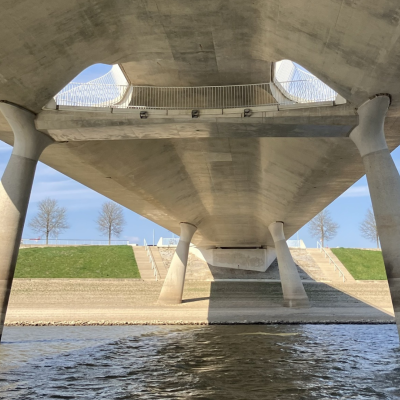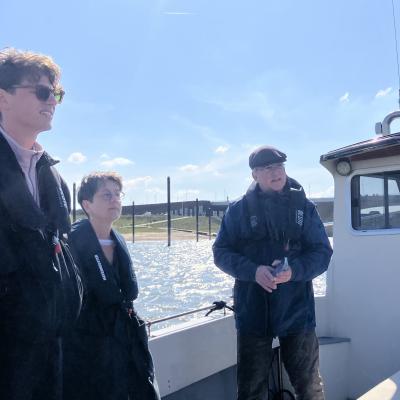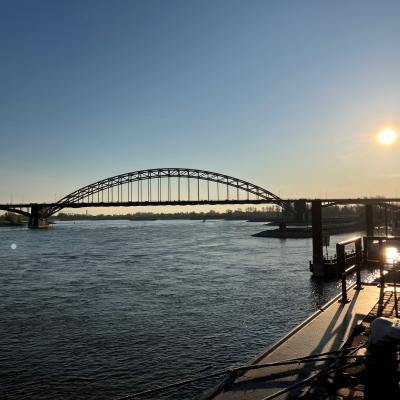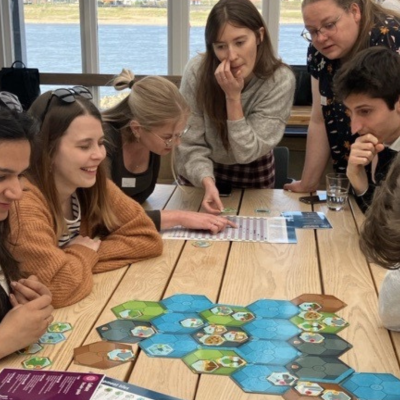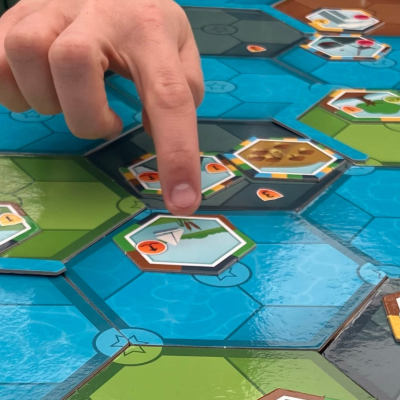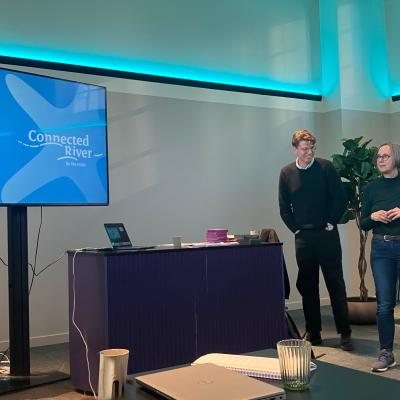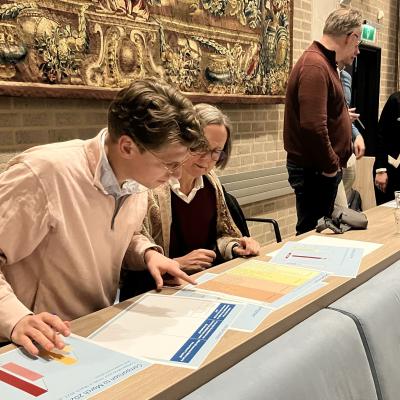At the beginning of April 2025, a partner meeting was held in the pilot area Nijmegen, focusing on the safe use of rivers. A jam-packed agenda with inspiring guest speakers from Rijkswaterstaat, TU Delft, and Leisure Land, and plenty of engaging workshops.

The Project Team of Connected River
The face-to-face meetings within the EU projects are crucial to ensure a better exchange with all partners and to get an idea of the pilot region and its challenges.
The first day started with a master class on “Boosting Ecosystems” and reports from the six pilot regions. The day ended with a game developed by Delft University of Technology to highlight the diverse perspectives of the involved stakeholders. Its goal is to foster a shared understanding of the current challenges, enabling participants to address them collaboratively.
TU Delft supports the project in an external but very important role: Carola Hein, professor at TU Delft, chairs the so-called Connected River Connection & Reflection Group, a think tank supporting the project though external expertise & a wider European and Global view. The members of this group (HAROPA, Oslo Port, ALICE ETP, City of Brussels, Port of Brussels, Rikswaterstaat, Ecoloop, Innovalor) from within and outside the project partnership also met in Nijmegen during this three day event.
Alongside several workshops designed to support the pilot projects in decision-making, problem-solving, and navigating challenges, the project team came together on the second day at the Nijmegen Water Sports Centre to examine site-specific user conflicts. Three guided excursions offered the opportunity to view the area of the (Spiegel) Waal from the water, from the land and with a focus on safety on the water. This excursion provided an intensive opportunity to get to know the pilot area. The group was welcomed by Phocas, the Nijmegen Lifeguard Brigade, and enjoyed an exciting water rescue workshop.
On the third and final day, a workshop was held together with the project partners on the topic of scaling, this work package is led by the project partner LIHH. The six pilot areas will try out new ideas, test different approaches and gain valuable experience. The focus is on how promising initial ideas can become sustainable developments.
This is about much more than simply scaling up an original experiment. It is crucial to develop something larger, more durable or even economically viable from the knowledge gained. This can mean turning a successful test phase into a broad rollout, permanently integrating a promising feature into a product range or transforming a proof of concept into a viable business model.
It was inspiring to share knowledge with the other pilot areas and learn about their challenges and solutions.
Source & Pictures: LIHH

